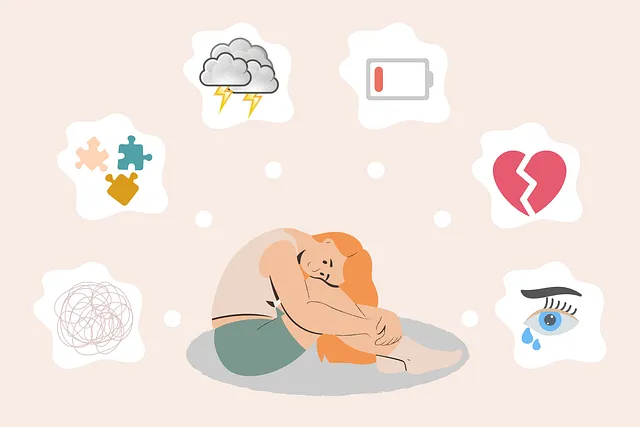Centennial Kaiser Permanente's dedicated behavioral health number offers vital crisis intervention services, focusing on immediate stabilization and long-term resilience building. Behavioral Health Professionals (BHPs) provide tailored support for severe distress or trauma, advocating for mental health policy improvements while implementing burnout prevention strategies. Using evidence-based techniques and active listening, specialists de-escalate situations and promote emotional well-being. Post-crisis support through accessible behavioral health services facilitates healing, fosters resilience, and enhances long-term mental wellness in communities.
“In times of crisis, effective intervention strategies are vital for guiding individuals towards stability and recovery. This comprehensive guide explores essential tools and techniques for navigating emergency situations, with a focus on the critical role played by behavioral health professionals. Drawing insights from Centennial Kaiser Permanente’s renowned approach, we delve into communication strategies, assessment methods, and post-crisis support systems. By understanding these key aspects, healthcare providers can offer compassionate care during and after crises, ensuring better outcomes for those in distress.”
- Understanding Crisis Intervention: A Brief Overview
- The Role of Behavioral Health Professionals in Emergency Situations
- Communicating Effectively During a Crisis (Centennial Kaiser Permanente's Approach)
- Strategies for Assessing and Stabilizing Individuals in Distress
- Post-Crisis Support and Community Resources: A Guide for Continued Healing
Understanding Crisis Intervention: A Brief Overview

Crisis intervention is a critical component of behavioral health services, often required when individuals face sudden and intense emotional or psychological distress. It involves immediate, focused support to help people cope with and recover from challenging situations. At Centennial Kaiser Permanente, our behavioral health number is dedicated to providing such guidance during times of crisis.
Understanding crisis intervention strategies is essential for both professionals and those seeking help. The goal is not only to stabilize the individual in the short term but also to empower them with tools for long-term resilience. This process often includes assessing the crisis, providing emotional support, offering practical solutions, and encouraging positive thinking as a means of stress reduction. Effective intervention can be life-saving, helping individuals navigate through traumatic events and emerge with enhanced coping mechanisms.
The Role of Behavioral Health Professionals in Emergency Situations

In emergency situations, Behavioral Health Professionals (BHPs) at organizations like Centennial Kaiser Permanente play a pivotal role in providing crisis intervention services. They are equipped to handle acute mental health episodes, offering immediate assessment and tailored support to individuals facing severe distress or trauma. With the dedicated behavioral health number accessible through Centennial Kaiser Permanente, affected persons can receive prompt assistance, ensuring their well-being during challenging times.
These professionals not only offer direct care but also advocate for effective Mental Health Policy Analysis and Advocacy, addressing systemic issues contributing to crisis situations. By implementing Burnout Prevention Strategies for Healthcare Providers, they maintain optimal performance and compassion, thereby enhancing the overall quality of Trauma Support Services rendered.
Communicating Effectively During a Crisis (Centennial Kaiser Permanente's Approach)

During a crisis, effective communication is paramount. Centennial Kaiser Permanente emphasizes a patient-centered approach, where behavioral health professionals actively listen and validate the individual’s emotions. This involves clear and concise language tailored to the person’s understanding, ensuring they feel heard and respected. The Mind Over Matter Principles guide this process, promoting a calm and supportive environment essential for effective intervention.
Centennial Kaiser Permanente’s comprehensive Healthcare Provider Cultural Competency Training equips staff with tools to navigate diverse situations. They encourage mindfulness meditation techniques that enhance empathy and patience, allowing professionals to remain composed under pressure. By combining these strategies, the organization ensures that crisis interventions are not only timely but also culturally sensitive and evidence-based, fostering better outcomes for those in need.
Strategies for Assessing and Stabilizing Individuals in Distress

When encountering individuals in distress, crisis intervention specialists must employ systematic strategies to assess and stabilize them effectively. The initial step involves active listening and open communication, allowing the person to express their feelings and concerns freely. This process helps build rapport and trust, ensuring the individual feels heard and understood. During this phase, specialists should pay close attention to both verbal and non-verbal cues, as they can provide valuable insights into the severity and nature of the crisis.
Assessing risk factors and safety is crucial. It involves determining if the person is at risk of self-harm or suicide, and identifying any potential hazards in their immediate environment. The Centennial Kaiser Permanente behavioral health number can serve as a vital resource, offering immediate access to professional support and guidance. By utilizing evidence-based techniques for Anxiety Relief and promoting Emotional Well-being Promotion Techniques, specialists can help de-escalate the situation. Additionally, Depression Prevention strategies may be implemented to safeguard against underlying depression or mitigate its impact during the crisis.
Post-Crisis Support and Community Resources: A Guide for Continued Healing

Post-crisis support is a vital aspect of healing and recovery for individuals and communities. After an incident or traumatic event, it’s crucial to have access to resources that foster mental wellness and resilience. Centennial Kaiser Permanente behavioral health services offer a dedicated line, easily accessible through their [behavioral health number], providing immediate assistance and guidance.
This support system plays a significant role in promoting self-esteem improvement and stress reduction methods. They connect individuals with mental wellness coaching programs tailored to their needs, ensuring they receive the necessary tools for long-term recovery. By leveraging these resources, communities can navigate challenges collectively, fostering a sense of unity and resilience that strengthens them against future crises.
Crisis intervention is a complex yet vital aspect of behavioral health, and as demonstrated by Centennial Kaiser Permanente’s approach, effective strategies can significantly impact an individual’s recovery. By understanding the role of behavioral health professionals, mastering communication techniques, and employing structured assessment methods, we can provide immediate support and stabilize those in distress. Additionally, recognizing the importance of post-crisis care and connecting individuals with community resources ensures a holistic healing process. The guidance offered in this article, including key practices from Centennial Kaiser Permanente, equips professionals to offer compassionate and competent assistance during challenging times, ultimately promoting long-term well-being.






